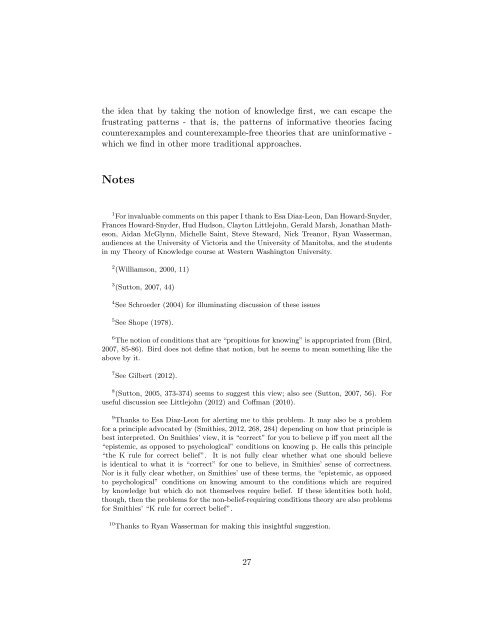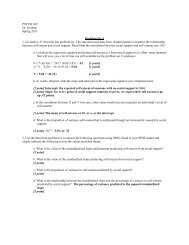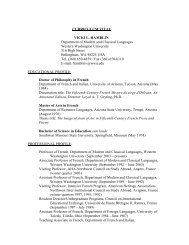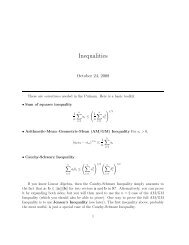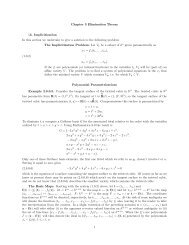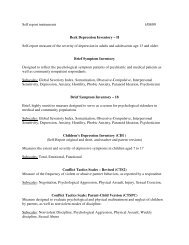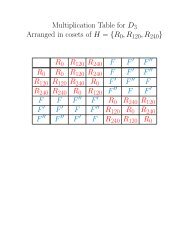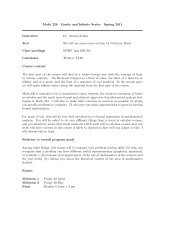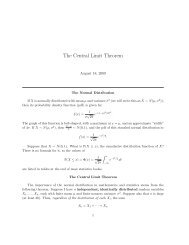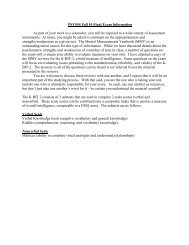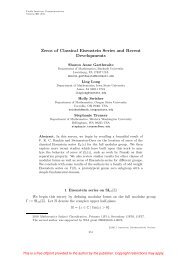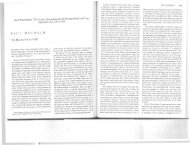Can There Be A Knowledge-First Ethics of Belief? - Western ...
Can There Be A Knowledge-First Ethics of Belief? - Western ...
Can There Be A Knowledge-First Ethics of Belief? - Western ...
Create successful ePaper yourself
Turn your PDF publications into a flip-book with our unique Google optimized e-Paper software.
the idea that by taking the notion <strong>of</strong> knowledge first, we can escape the<br />
frustrating patterns - that is, the patterns <strong>of</strong> informative theories facing<br />
counterexamples and counterexample-free theories that are uninformative -<br />
which we find in other more traditional approaches.<br />
Notes<br />
1 For invaluable comments on this paper I thank to Esa Diaz-Leon, Dan Howard-Snyder,<br />
Frances Howard-Snyder, Hud Hudson, Clayton Littlejohn, Gerald Marsh, Jonathan Matheson,<br />
Aidan McGlynn, Michelle Saint, Steve Steward, Nick Treanor, Ryan Wasserman,<br />
audiences at the University <strong>of</strong> Victoria and the University <strong>of</strong> Manitoba, and the students<br />
in my Theory <strong>of</strong> <strong>Knowledge</strong> course at <strong>Western</strong> Washington University.<br />
2 (Williamson, 2000, 11)<br />
3 (Sutton, 2007, 44)<br />
4 See Schroeder (2004) for illuminating discussion <strong>of</strong> these issues<br />
5 See Shope (1978).<br />
6 The notion <strong>of</strong> conditions that are “propitious for knowing” is appropriated from (Bird,<br />
2007, 85-86). Bird does not define that notion, but he seems to mean something like the<br />
above by it.<br />
7 See Gilbert (2012).<br />
8 (Sutton, 2005, 373-374) seems to suggest this view; also see (Sutton, 2007, 56). For<br />
useful discussion see Littlejohn (2012) and C<strong>of</strong>fman (2010).<br />
9 Thanks to Esa Diaz-Leon for alerting me to this problem. It may also be a problem<br />
for a principle advocated by (Smithies, 2012, 268, 284) depending on how that principle is<br />
best interpreted. On Smithies’ view, it is “correct” for you to believe p iff you meet all the<br />
“epistemic, as opposed to psychological” conditions on knowing p. He calls this principle<br />
“the K rule for correct belief”. It is not fully clear whether what one should believe<br />
is identical to what it is “correct” for one to believe, in Smithies’ sense <strong>of</strong> correctness.<br />
Nor is it fully clear whether, on Smithies’ use <strong>of</strong> these terms, the “epistemic, as opposed<br />
to psychological” conditions on knowing amount to the conditions which are required<br />
by knowledge but which do not themselves require belief. If these identities both hold,<br />
though, then the problems for the non-belief-requiring conditions theory are also problems<br />
for Smithies’ “K rule for correct belief”.<br />
10 Thanks to Ryan Wasserman for making this insightful suggestion.<br />
27


